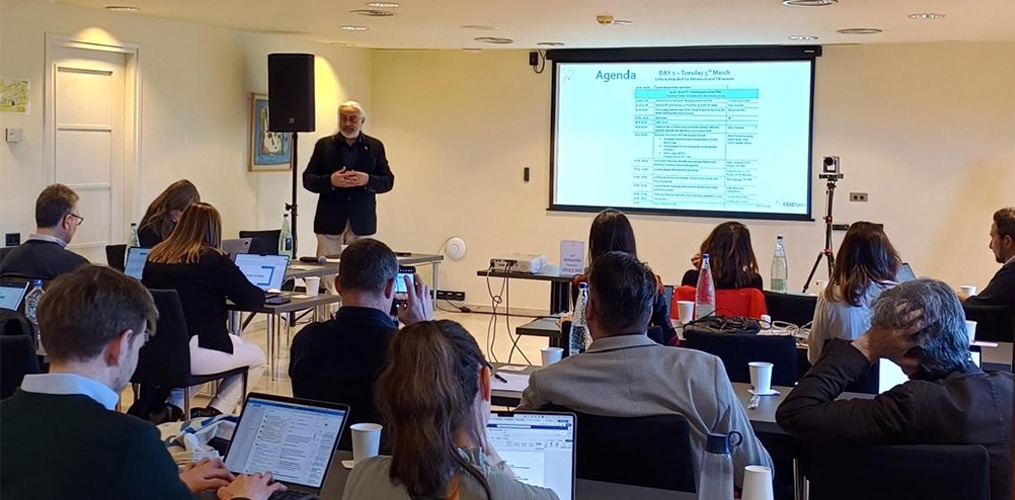
The Dahlem Workshop of the EOSC Future project, ‘Accelerating Open Science in EOSC: Collaborative Interfaces between Scientific Domains and Disciplines,’ took place in Barcelona, Spain, from 5 to 7 March.
Organised by LifeWatch ERIC, the workshop’s main objective was to improve dialogue and ensure that the EOSC platform effectively supports interdisciplinary initiatives. Also, engineering teams shared insights on physical development, while high-level scientists presented their achievements and discussed current challenges. This workshop covered EOSC Future’s goals and methods for developing collaborative interfaces.
A Dahlem Workshop is an international scientific exchange that encourages cooperation and communication and generates new knowledge. It offers a dynamic interdisciplinary process.
The workshop goal
The workshop started with an opening session from LifeWatch ERIC’S CEO, Christos Arvanitidis. The first day’s theme was “Collaborative interfaces between different scientific domains and disciplines promoted by EOSC”. The participants brought some examples from EOSC Future projects and future perspectives. On the second day, the workshop focused on three domains: Molecular Biology and Omics, Eco-economy, and Social Sciences and Humanities. Furthermore, each domain had a breakout group session where Science Projects, Science Clusters, and top scientists collaborated to address challenges, brainstorm data-driven solutions, and explore opportunities for interdisciplinary collaboration via EOSC. The final day was dedicated to compiling the results of the writing workshop and planning for their future publication in a scientific journal.
This EOSC Future project’s initiative fosters interdisciplinary collaboration, promotes synthetic knowledge, and drives innovation to address major societal demands. Additionally, this workshop is crucial to building a more interconnected and collaborative scientific landscape. To learn more about EOSC Future, please visit the official website.